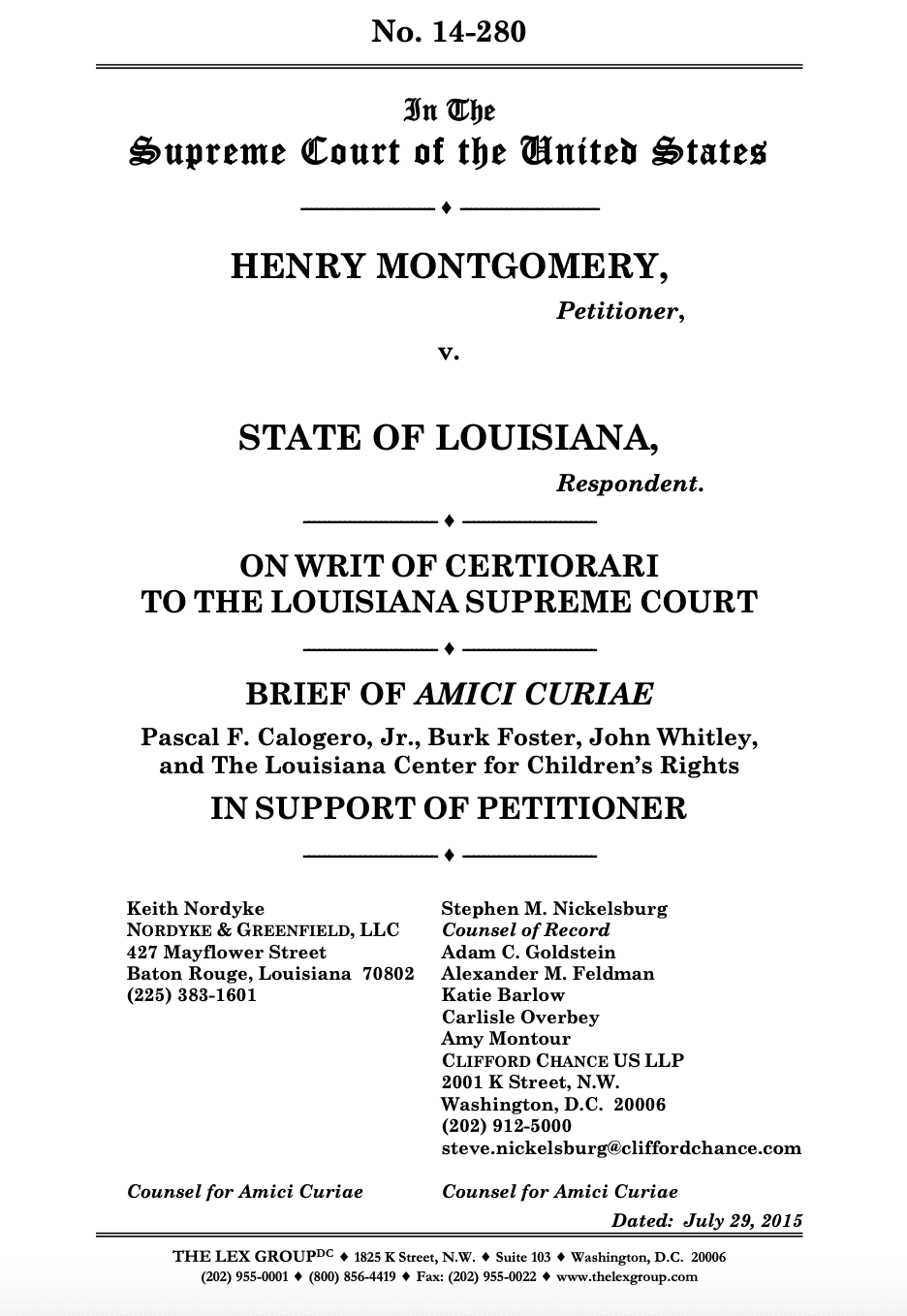
Summary of Argument
In Miller v. Alabama, this Court set forth the substantive principle that a sentence of “mandatory life without parole for those under the age of 18 at the time of their [homicide] crimes violates the Eighth Amendment’s prohibition on ‘cruel and unusual punishments.’” This was based on the Court’s insights and teachings “that in imposing a State’s harshest penalties, a sentencer misses too much if he treats every child as an adult,” in particular, “his chronological age and its hallmark features,” “the family and home environment that surrounds him,” “the circumstances of the homicide offense, including the extent of his participation in the conduct and the way familial and peer pressures may have affected him,” and even “that he might have been charged and convicted of a lesser offense if not for incompetencies associated with youth.”
Of all of these features, a fundamental premise for barring mandatory juvenile life without parole sentences in Miller and Graham v. Florida was “the possibility of rehabilitation . . . when the circumstances most suggest it.” Observing that a sentence of life without parole “‘forswears altogether the rehabilitative ideal,’” 3 567 U.S. ____, 132 S. Ct. 2455, 2460 (2012). the Court rejected the prospect of “denying the defendant the right to reenter the community” and “mak[ing] an irrevocable judgment about that person’s value and place in society”
Amici support Petitioner’s arguments that the promise of Miller and Graham was substantive, not merely procedural, and should be given retroactive effect for the reasons set forth in the principal Brief. Amici write separately to present, based on their experience and observations over decades of deep involvement with the Louisiana penal system, that the fundamental premise of Miller and Graham is real and not merely theoretical. based on crimes committed when the defendant was a juvenile.
Amici come from all sides—as advocates for the defense and in support of parole and clemency applications, as members of the community, as a former member of the Louisiana Judiciary, and as a former Warden of Angola, long considered among the most violent and challenging prisons in the country.
From these diverse perspectives, Amici agree on a universal proposition: They all have observed juvenile offenders, convicted even of the most serious crimes, processed through one of the most historically difficult systems of justice, and housed under the most violent, hostile, and hopeless conditions, who can and do find the spark of rehabilitation, and who can and do grow and develop to the point where they could be welcomed back into society under any standard governing parole.
The Court necessarily considers the circumstances of one individual, Henry Montgomery, sentenced to die in prison under Louisiana’s mandatory sentencing laws. But this case affects numerous individuals still serving mandatory sentences of life without parole based on juvenile homicide convictions despite this Court’s holding that the sentence is unconstitutional. In the Louisiana prison system alone, there are more than two hundred individuals convicted and incarcerated for crimes committed while juveniles whose right to the mere possibility of parole turns on the Court’s decision.
All of these individuals’ sentences were adjudged final before this Court’s decision in Miller, and thus none will receive the possibility of parole if the decision is not given retroactive effect. Amici urge the Court to hold that the prohibition on mandatory life sentences for juveniles is not a mere procedural wrinkle, but a substantive, constitutionally protected consideration to which every juvenile is entitled.
In this Brief, Amici present the personal stories of five individuals sentenced to a mandatory sentence of life without parole who nonetheless overcame their circumstances to demonstrate the ability of juveniles to reform is real. Amici do not minimize the suffering of the victims or society’s legitimate interest in ensuring those who commit crimes are punished. Rather, Amici present support for the Court’s long-held understanding that even violent juvenile offenders can reform.